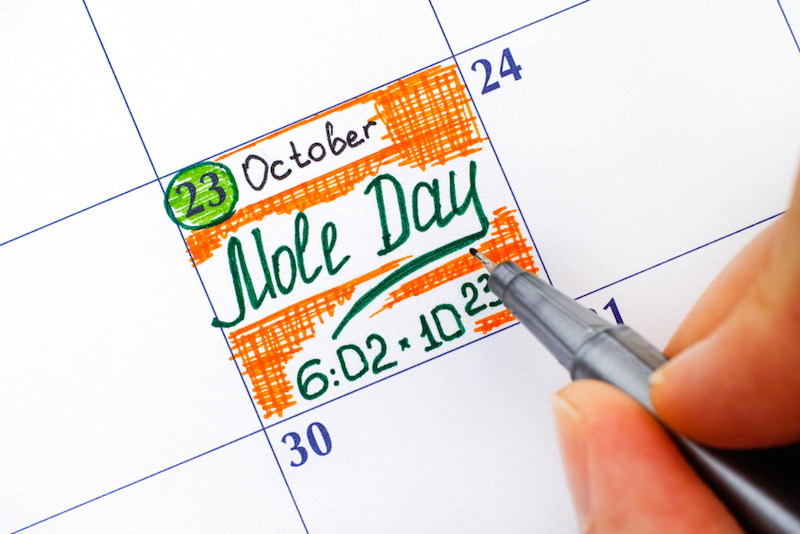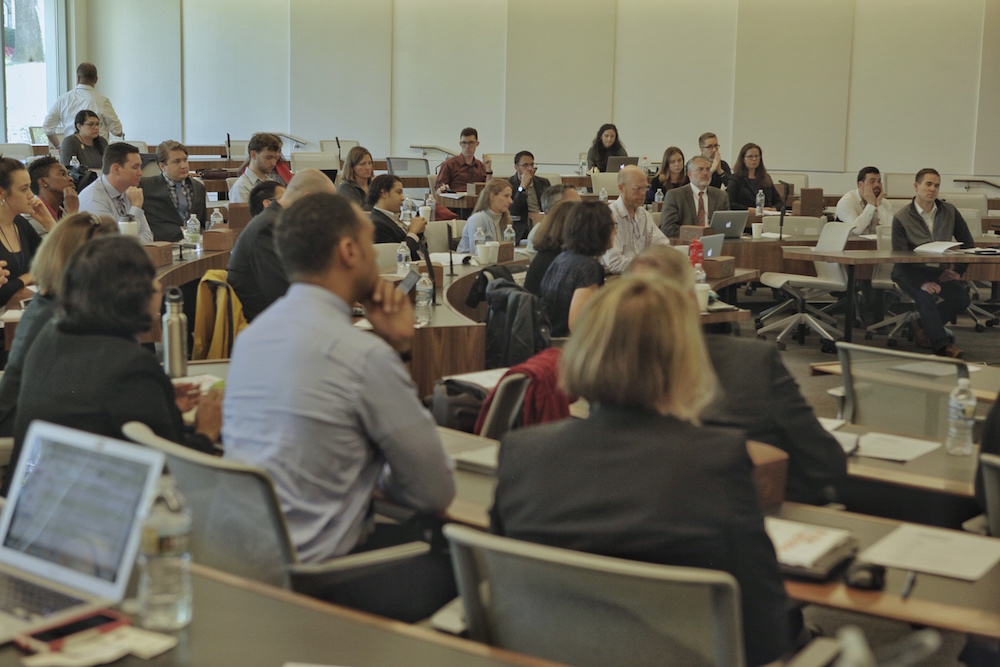Happy Mole Day! Mayors Celebrate Scientific Date with Research Push

Move over Pi Day: Mayors across the U.S. are celebrating the day of the mole — which began at 6:02 a.m. today (10/23) in honor of the vast number of atoms or molecules in a mole of matter (6.02 X 10^23) — by advocating unfettered scientific research.
So far, 20 mayors, whose cities, including Pittsburgh, Philadelphia, Denver and Nashville, have a population of almost 6 million people, have signed the pledge, which states that government scientists and those who conduct federally or state-funded research should be able to share their results "without political interference."
A handful of the mayors will share their reasons for signing the pledge on Facebook Live at 4 p.m. EDT today, including Nancy McFarlane, the mayor of Raleigh, North Carolina, since 2011, and a former pharmacist and businesswoman. [Best Supporting Role: 8 Celebs Who Promote Science]
McFarlane said she plans to talk about how cities will combat climate change, despite President Donald Trump's decision to pull out of the Paris Agreement.
"Cities are often the leaders in the introduction of new technology," McFarlane told Live Science in an email. "Despite the president's actions, many mayors not only remain committed to, but feel compelled to increase their commitment to sustainability, environmental protection and reducing their impact on carbon emissions in the air."
The Mole Day pledge is being organized by 314 Action, a nonprofit committed to electing scientists to public office, much like Emily's List helps qualified women run for election. The group 314 Action was founded in July 2016 by Shaughnessy Naughton, a chemist and businesswoman who ran twice, but lost, for U.S. Congress in Pennsylvania's 8th district.
About 7,000 scientists across the country have reached out to 314 Action over the past year, and several thousand have watched the group's online and in-person training sessions on how to set up a campaign, hire staff and consultants, and put together and broadcast a platform. These scientists aren't just interested in federal office, but are also running for state legislatures, city councils, school boards and even county coroner positions, Naughton told Live Science.
Sign up for the Live Science daily newsletter now
Get the world’s most fascinating discoveries delivered straight to your inbox.

But don't expect all 7,000 to run in 2018, Naughton said. "Scientists like to do their homework, so some of them are thinking of runs in 2020 and beyond," she said. "It's not just for this election cycle."
As for Mole Day, Naughton said she couldn't resist taking the nerdy day that celebrates Avogadro's number to the mainstream. (Amedeo Avogadro was an Italian chemist who lived from 1776 to 1856.)
"We thought it would be a good time to highlight our STEM [science, technology, engineering and math] principles" in light of the "proposals and things enacted by the Trump administration that are just a denial of science," Naughton said.
For instance, the Environmental Protection Agency (EPA) is keeping three of its scientists from attending an event in Rhode Island today that deals, in part, with climate change, according to the Associated Press. In August, emails obtained by The Guardian show that U.S. Department of Agriculture (USDA) employees were told to stop using the term "climate change." And a 2015 report by the Florida Center for Investigative Reporting found that in Florida, state employees had been discouraged from using the terms "climate change" and "global warming," according to The Washington Post.
It's crucial that government officials learn about and act on climate change, McFarlane said.
"As an elected official with a STEM background, I have a better understanding of the environmental impact of our decisions," McFarlane said. "I am less swayed by political banter and more interested in empirically proven data." (314 Action has endorsed McFarlane for political office; she is seeking re-election for mayor on Nov. 7.)
People can ask their mayors to sign 314 Action's STEM pledge by filling out this form.
Original article on Live Science.

Laura is the archaeology and Life's Little Mysteries editor at Live Science. She also reports on general science, including paleontology. Her work has appeared in The New York Times, Scholastic, Popular Science and Spectrum, a site on autism research. She has won multiple awards from the Society of Professional Journalists and the Washington Newspaper Publishers Association for her reporting at a weekly newspaper near Seattle. Laura holds a bachelor's degree in English literature and psychology from Washington University in St. Louis and a master's degree in science writing from NYU.









